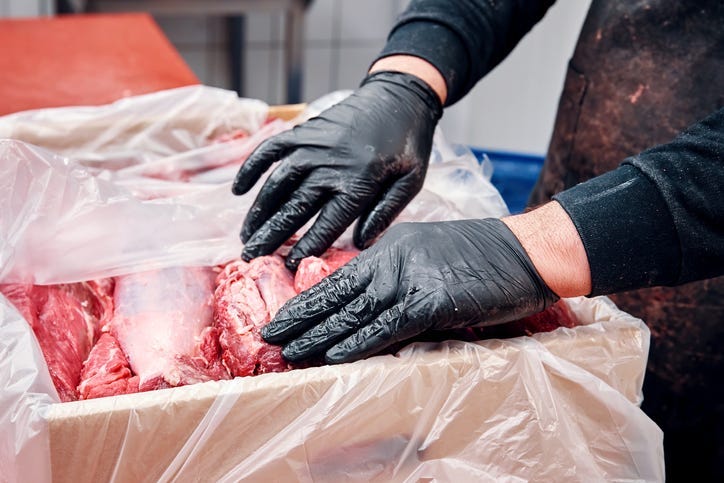
DALLAS (1080 KRLD) - Texas Governor Greg Abbott announced Saturday a "surge response team" had been sent to Amarillo, after hundreds of employees of meat processing plants were confirmed to have COVID-19.
The meat processing facilities were immediately closed to be disinfected.
"I've never seen anything like this in the 20 years I've been doing this," says Chris Jackson, the operations manager at The Meat Board butcher shop in Fort Worth. "It is mind-blowing."
Jackson says he regularly works with the same distributors. None of them are in the panhandle, and his cases have stayed full.
"You've got plenty of cattle, plenty of beef in the market, but this COVID has caused havoc at the packing houses," he says.
Jackson says those packing houses are taking precautions to prevent the spread of COVID-19 among employees.
"All these manufacturing companies, they'll have requirements before every employee enters the door," he says. "They'll take their temperature. They have face masks, they have gloves, and they're actually separating everyone with those six foot parameters."
Jackson says The Meat Board has not been hurt by shortages that are common at grocery stores. He says he orders stock a month in advance and has a greater ability to adjust orders.
"Our supply is fine right now. We've got a great supply of what we're doing at The Meat Board. I don't see us, how small we are, how custom we are, that we'll have an issue," Jackson says. "I'm looking for two thousand pounds, which is easy. I'm a little, minute volume compared to the grocery stores. That's why I still have product."
He says customers often ask if the shop has any limits. He says The Meat Board has no limits on how much people can buy, but if they are planning to stockpile beef, chicken or pork, they urge customers to order ahead of time.
The CDC says COVID-19 can spread quickly inside meat processing plants because it is difficult for employees to maintain six feet of distance while working on production lines.
The CDC says transmission of COVID-19 from someone who works at a processing plant to a consumer is unlikely. Researchers say the virus can survive on plastic for several days, but the virus becomes less infectious and the threat of transmission drops by the time the packaging reaches the consumer.
The CDC says normal measures to clean hands and disinfect an area after handling raw meat would also be effective in preventing the spread of the virus.
